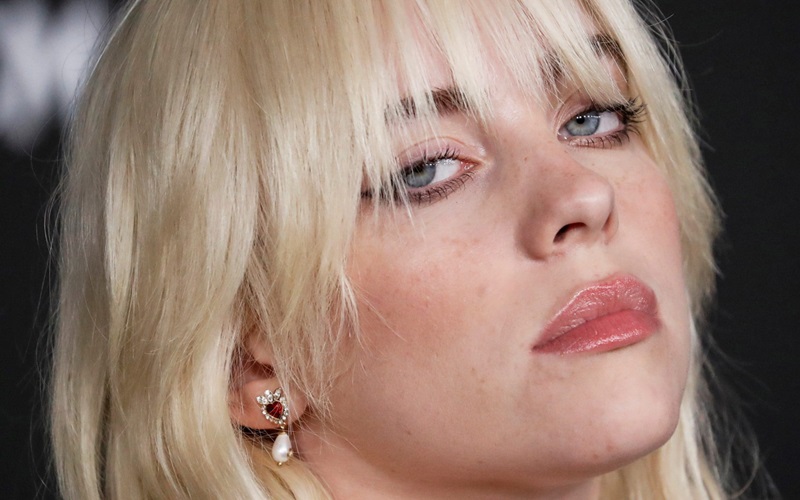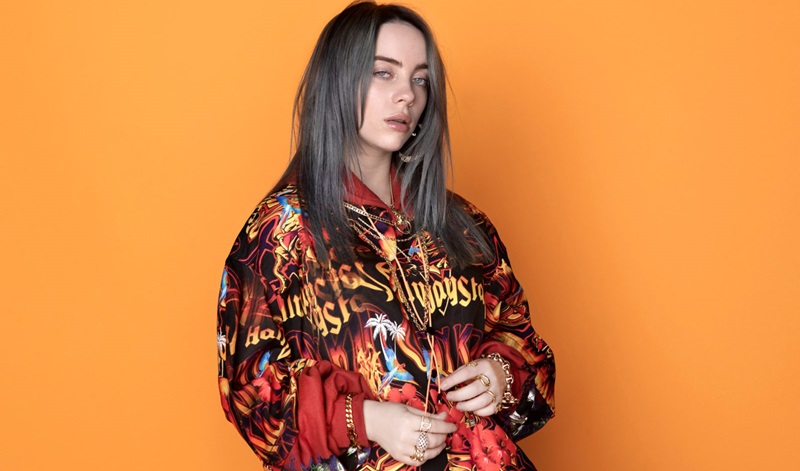Billie Eilish, globally recognized pop sensation, recently spoke candidly about her exposure to explicit adult content at an alarmingly young age. The Grammy-winning singer, known for her brilliantly raw and relatable lyrics, revealed that she started viewing such content when she was only 11 years old, a revelation that has sparked wide-ranging discussions about the potential detrimental effects of early exposure to such material on young minds.
In an interview, Eilish shared that her early exposure to explicit content distorted her understanding of healthy relationships, leading to self-esteem issues and unrealistic expectations about physical intimacy. This candid revelation highlights the need for responsible digital consumption and parental supervision, especially considering how easily accessible explicit content is in today’s digital age.
As a role model for many young people worldwide, Eilish’s openness about her personal experiences underscores the importance of dialogue around the topic and serves as a poignant reminder of the possible psychological consequences that can result from premature exposure to adult content. The star’s expression of regret and her strong desire to protect young fans from a similar experience is a testament to her commitment to use her platform to foster positive change.
How Early Exposure to Pornography Affected Billie Eilish
Billie Eilish, the Grammy-winning pop sensation, has been candid about her own experiences with early exposure to explicit content. Eilish’s revelation about viewing adult content from an early age has opened up a conversation about its potential impacts on young minds.
She confessed in an interview that she started watching pornography at the age of 11, and it significantly influenced her understanding of sex and relationships. The young artist stated that her early exposure to such explicit content had a detrimental effect on her mental health, leading to sleep problems and an unhealthy perception of what a sexual relationship should look like.
This exposure had dominated her thoughts in an overwhelming manner, creating unrealistic expectations and distorted perceptions about personal relationships. These experiences have influenced her music and her public persona, presenting a stark warning about the dangers of early exposure to adult content. Eilish’s openness about her experiences has ignited a global dialogue about the need for effective parental controls on the internet and the importance of appropriate sexual education for young people.

The Connection Between Pornography and Nightmares
The relationship between consuming explicit adult content, often referred to as pornography, and experiencing nightmares is a subject of extensive psychological exploration. A key theory suggests that viewing explicit content can heighten anxiety levels, which in turn may influence the nature of dreams, possibly resulting in nightmares.
This is because the human brain processes and internalizes the content it is exposed to during the day in dreams. Thus, the explicit and often intense visual stimulation from pornography could potentially disturb sleep patterns and contribute to the occurrence of nightmares.
In addition, some research indicates that frequent consumption of adult content may lead to desensitization to normal sexual behavior and heightened arousal to more extreme or violent scenarios. This desensitization and shift in arousal patterns can potentially infiltrate dreams, leading to distressing and nightmarish experiences. Furthermore, feelings of guilt and shame associated with viewing pornography, especially in societies or communities where it is stigmatized, can also contribute to stress and anxiety, which are known precursors to nightmares.
However, it is essential to note that these connections are not definitive. The effects of pornography on the human psyche can vary widely based on individual differences, such as personal values, attitudes, and past experiences. Therefore, while some individuals may experience nightmares or distressing dreams after viewing explicit content, others may not.
Moreover, a variety of factors can influence the occurrence of nightmares, of which pornography is only one potential contributor. As such, more comprehensive research is needed to fully understand the complex relationship between consumption of pornography and the incidence of nightmares.

Billie Eilish’s Journey to Overcome Nightmares
Billie Eilish, an enchanting melody-maker who has taken the music industry by storm, has had to confront and overcome a series of nightmares that have haunted her since childhood. The young artist, known for her soulful voice and introspective lyrics, has often shared her experiences with sleep paralysis and terrifying dreams.
These nocturnal terrors have been so impactful that they have found their way into her music, adding a layer of raw authenticity that resonates with her listeners globally. Battling these nightmares, Billie turned to therapy and used her music as an outlet to express her experiences and feelings. This cathartic process has not only helped her manage her fears but also shaped her unique, candid style. This journey of overcoming nightmares reflects the strength and resilience of this young star.
It has also been a source of inspiration for many of her fans who may be grappling with their own fears and anxieties. Throughout her journey, Billie has consistently demonstrated that obstacles and fears can be transformed into something beautiful and resonant, such as her chart-topping music.
Despite the challenges she faced, Billie Eilish has turned her struggle into a beacon of hope, illuminating the path for others who may be walking in darkness. Her journey serves as a testament to the power of authenticity, resilience, and the transformative nature of art.
Advice from Billie Eilish: Navigating Mental Health Challenges
Billie Eilish, an iconic pop star and a symbol of authenticity for her generation, has been candid about her own mental health struggles, hoping to inspire and comfort her fans who might be dealing with similar issues. She emphasizes the importance of open discussions about mental health, encouraging people to express their feelings rather than suppressing them.
According to Eilish, acknowledging one’s mental health challenges is the first step towards seeking help. She believes that it’s vital to reach out to trusted individuals, such as family members, friends, or mental health professionals when you’re feeling low or overwhelmed. She also emphasizes the importance of self-care in maintaining mental wellbeing.
This doesn’t just include physical wellness, but also spending time doing what you love, seeking professional counseling if required, and taking breaks from social media to disconnect from the negativity and pressure. Eilish’s advice also extends to the need for societal change, advocating for a global shift in the perception of mental health, where it is no longer stigmatized, but understood and supported.
Her openness about her own struggles and journey towards better mental health is a beacon of hope for countless young fans who admire her, offering them comfort that they are not alone in their battles. Billie Eilish’s advice is clear: navigating mental health challenges is not a journey to be taken alone, and seeking help is not a sign of weakness, but a step towards recovery and resilience.

Public Reaction and Impact on Eilish’s Career
Billie Eilish’s meteoric rise to fame caught the public’s attention in a way few other artists have. Her unique sound and style, coupled with her candid lyrics, resonated with many, quickly establishing a dedicated fan base. However, her rapid ascension was not without controversy.
The public’s reaction to Eilish’s career has been a blend of admiration and critique. Some appreciate her for daring to be different in an industry that often values conformity, while others criticize her for what they perceive as a lack of traditional musical talent or for her often provocative image.
Despite this, the impact on Eilish’s career has been overwhelmingly positive. Her album «When We All Fall Asleep, Where Do We Go?» debuted at number one on the Billboard 200, making her the first artist born in the 2000s to achieve this feat. She further cemented her place in music history by sweeping all four major categories at the 62nd Annual Grammy Awards, an accomplishment not seen since Christopher Cross in 1981.
This success has also paved the way for Eilish to use her platform in impactful ways. She has been open about her struggles with mental health, which has sparked conversations amongst her fans and the wider public. Moreover, she’s spoken out about body image and the unrealistic expectations placed on young women, using her music videos and public appearances as platforms to challenge societal norms.
However, the constant scrutiny that comes with her level of fame has had some negative aspects. The intense public and media attention can often lead to invasive and harmful behavior, such as body-shaming comments or unwarranted speculation about her personal life. Despite these challenges, Eilish continues to navigate her career with resilience and authenticity, making her an influential figure in the music industry and beyond.

